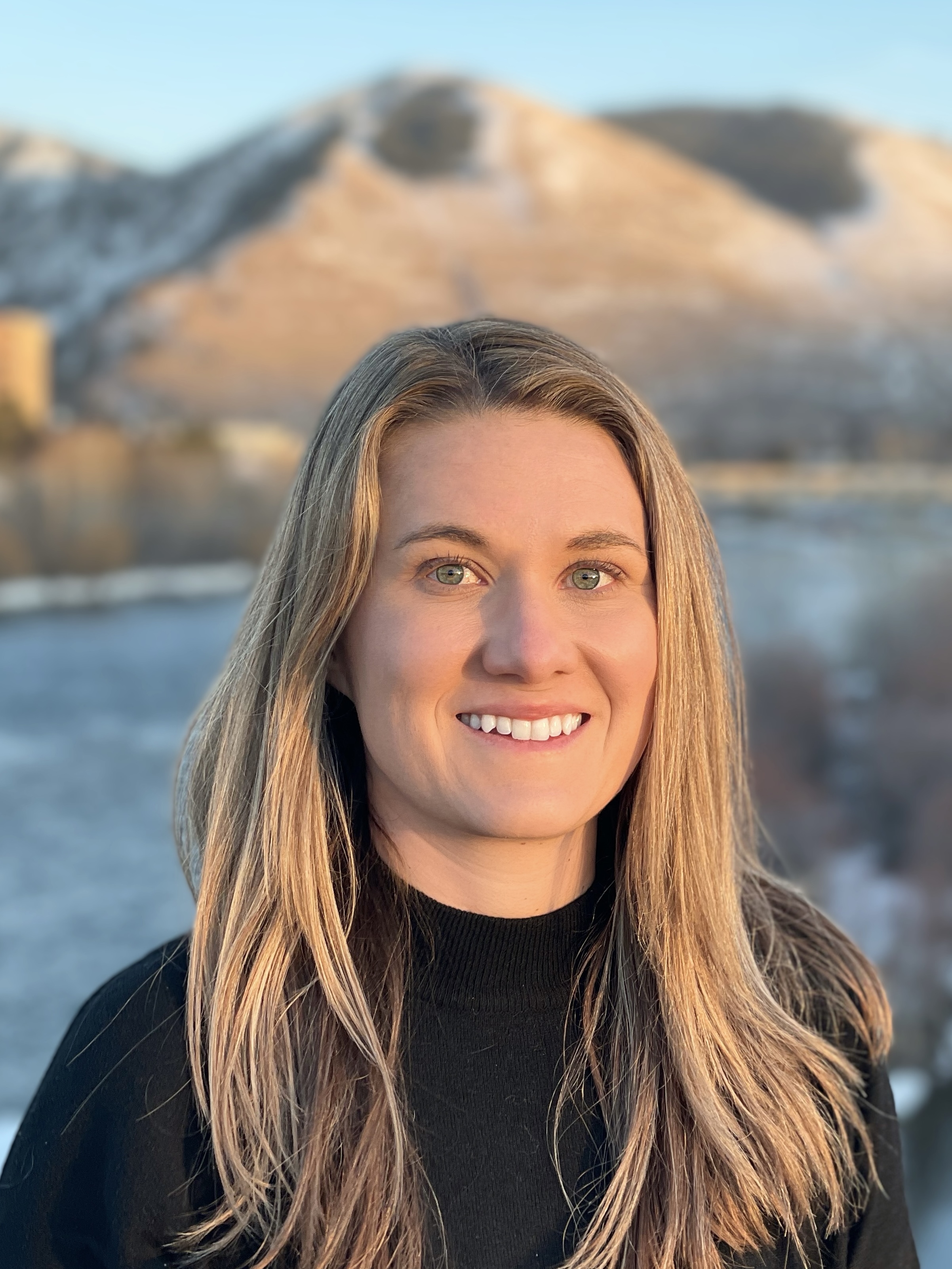December 2022 Champion
Hayley Blackburn, Pharm.D., BCACP, BC-ADM
There is no magic pill to cure climate change, but Hayley Blackburn thinks pharmacists should help develop a treatment.
As a licensed pharmacist and a university professor, she says pharmacists are integral to the healthcare system and drug industry and can influence the environmental impact of the manufacturing and distribution systems. And she says pharmacists know the human costs of climate change because they regularly see patients who experience its effects.
“All along that chain — in terms of manufacture, distribution, purchasing, dispensing, recommending medications and ultimately talking with patients — all of that falls in line with where pharmacists already are,” says Blackburn, an associate professor of pharmacy practice at the University of Montana Skaggs School of Pharmacy in Missoula.
Blackburn is putting before her profession a big task, but she says it can handle the job. She says about 10 percent of the US carbon footprint is in the healthcare industry, with a large portion of that footprint directly related to pharmaceuticals. She says pharmacists can recommend drug choices and use this ability to hold manufacturers accountable for their sustainability practices through their choices of products.
“It is kind of surprising that we haven’t been more active as a profession,” Blackburn says. Other healthcare providers, notably doctors and nurses, have led the way, but doctors and nurses do not always have all the knowledge of the pharmaceutical system that pharmacists possess, she says. To help unite the pharmacy profession around this cause, Blackburn and pharmacy colleagues from around the world established Rx for Climate, a web-based community to promote networking, advocacy, and education within the profession.
In an editorial in the Journal of the American College of Clinical Pharmacy in 2021, Blackburn and colleagues put it this way: “The fact that these health issues are too large and too complex for any individual or profession to fix alone does not mean that pharmacists can ignore them.”
Blackburn also sees an opportunity for individual pharmacists to make a big difference in responding to the health impacts of climate change. “There are a lot of places, especially in Montana and other rural states, where pharmacies are the nearest and most accessible places for health services,” she says. This puts pharmacists on the front lines, working with some of those at highest risk of experiencing climate-related harms, and making them key partners to help minimize those health impacts.
